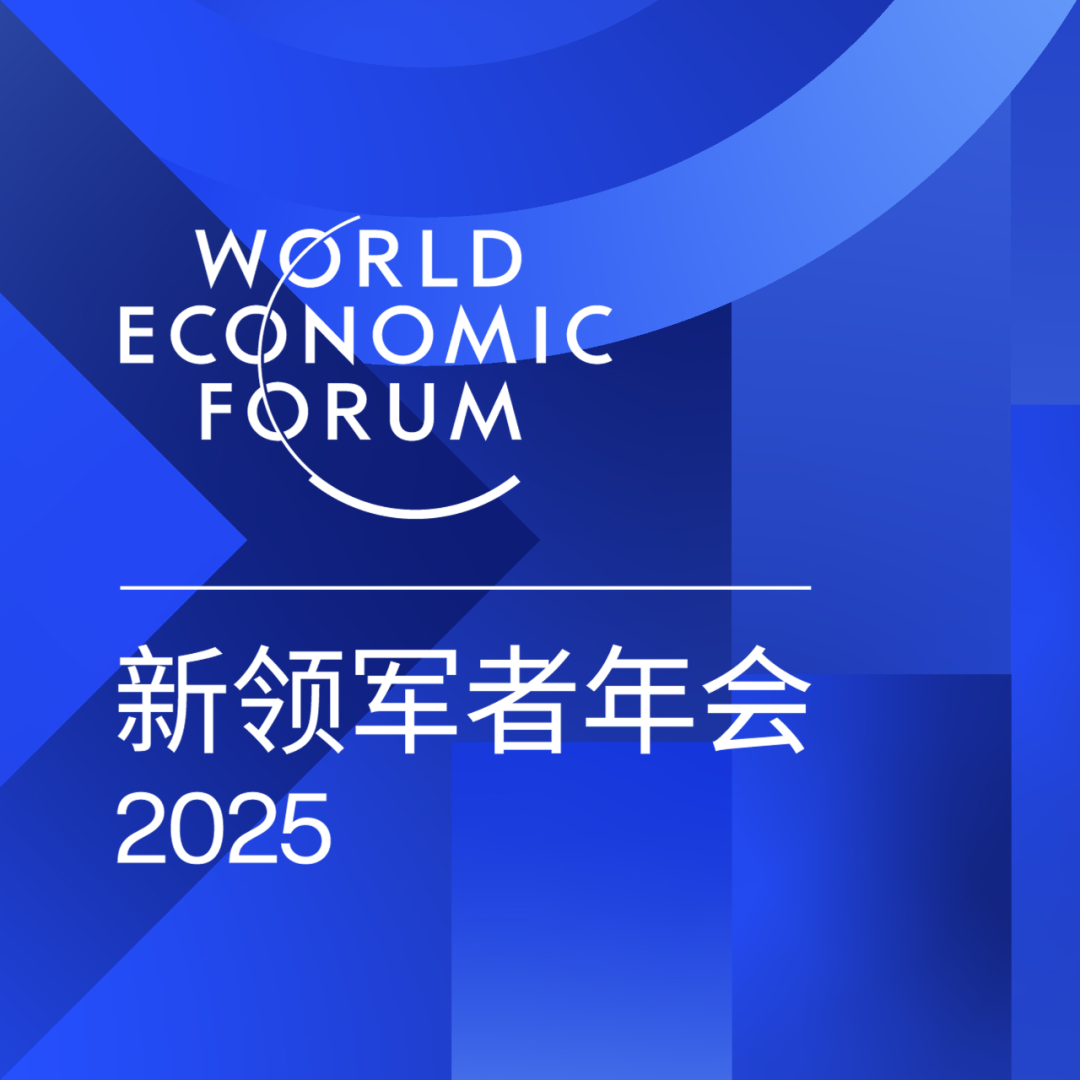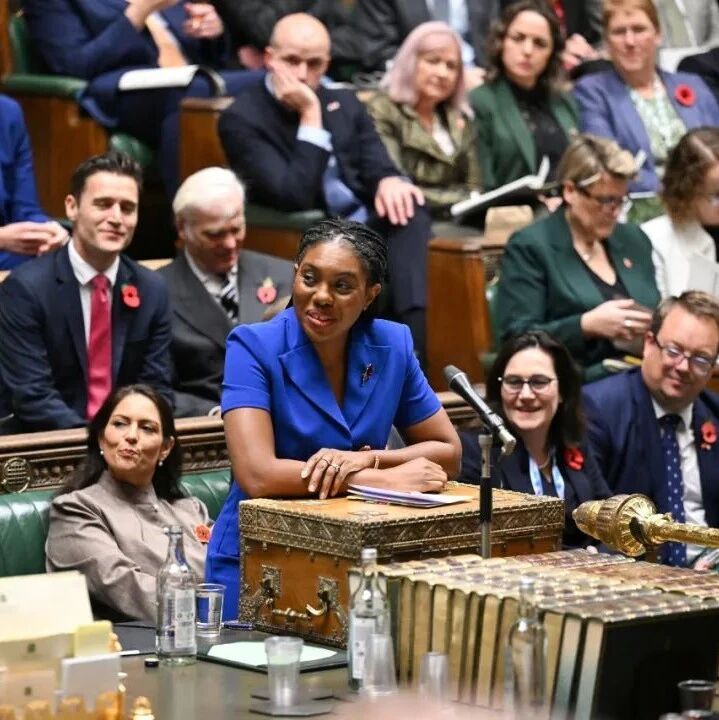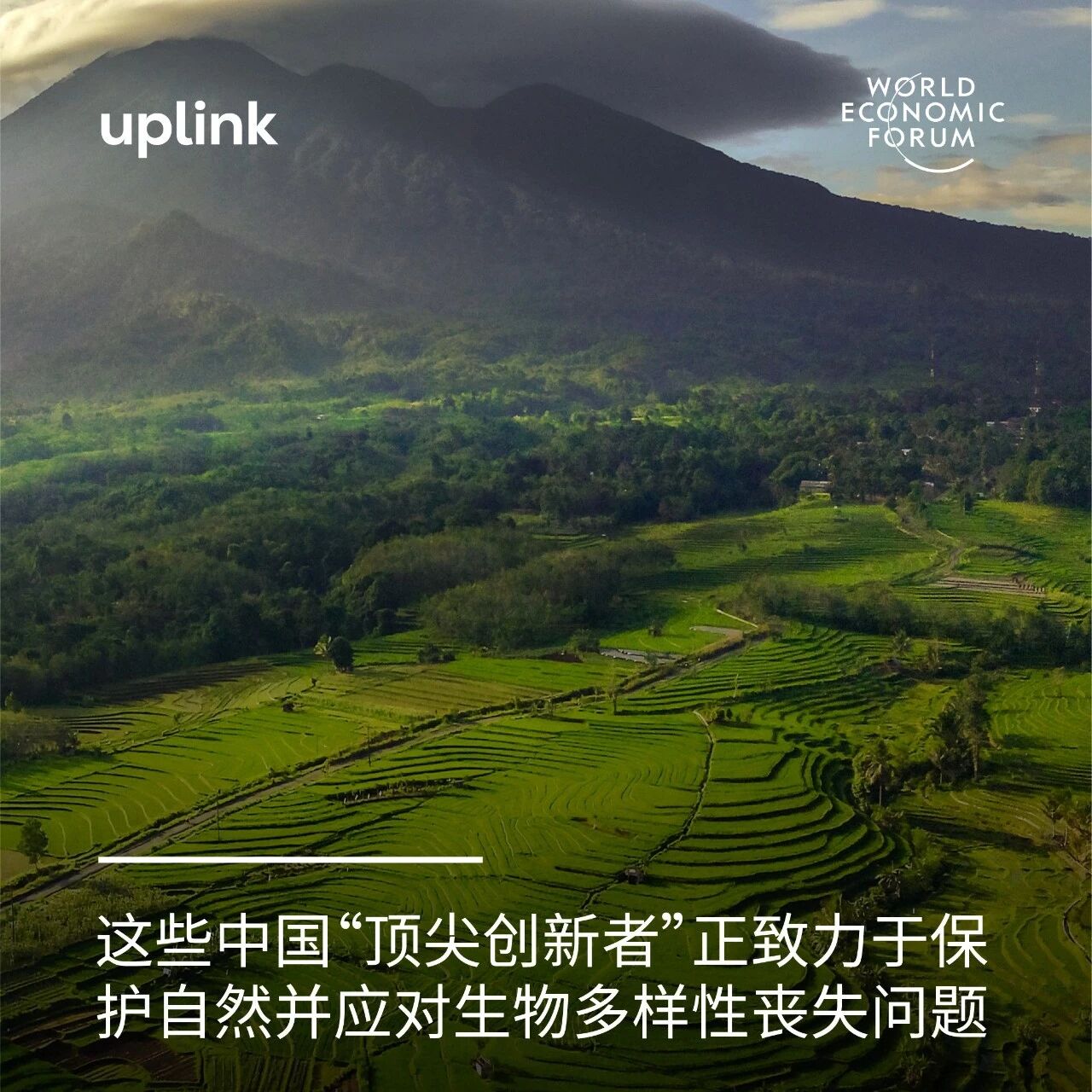More than 1,700 global leaders gathered to deeply discuss how entrepreneurship and innovation can reignite growth momentum amid the ever-evolving geopolitical and economic landscape.
The annual conference brings together leaders from various sectors to share insights and inspire action around key topics aligned with the following five core pillars: Decoding the Global Economy, China’s Economic Outlook, Industries in Times of Transformation, Investing in People and the Planet, and Emerging Energy Solutions & Materials.
The World Economic Forum, in collaboration with its partners, has released several reports and launched multiple initiatives covering emerging technologies, fintech and manufacturing, energy transition, sustainable development, and economic growth.
For more information about the 2025 New Champions Annual Meeting, please click to read the original article.
Against the backdrop of the global economy reaching a critical juncture, more than 1,700 global leaders from politics, business (including top innovators), academia, civil society organizations, international bodies, and the media have gathered in Tianjin, China, for the 16th Annual Meeting of the New Champions at the World Economic Forum. Through high-level dialogues and action-oriented exchanges, these leaders have delved into the evolving geopolitical and economic landscape, co-created innovative business models, and forged fresh partnerships—all aimed at unlocking the full potential of emerging technologies and igniting new momentum for economic growth.
Under the theme of "Entrepreneurial Spirit in the New Era," a new generation of leaders and entrepreneurs—including innovators, unicorn companies, tech pioneers, and entrepreneurs from the Next Generation Leaders community—are delving into how to harness the power of emerging technologies and entrepreneurial drive to foster economic resilience, drive industry transformation, and advance sustainable development. Several key sessions at the annual conference will focus specifically on emerging markets, as well as the trends shaping Asia’s economic landscape and China’s economic future.
"In a rapidly evolving global landscape, technology is the key driver of shared progress," said Peter Brabeck-Letmathe, Acting Chairman of the World Economic Forum's Board.
"In an increasingly fragmented world, only through collaborative creation and deep partnerships across industries and regions can we develop inclusive, resilient solutions," said Børge Brende, President and CEO of the World Economic Forum.
"Accompanying these changes and shifts is a process of reconfiguration and reshaping," noted Chinese Premier Li Qiang. "The global economy of the future will not simply repeat yesterday's story," he added.
“As long as we work together, we can drive change,” said Singapore’s Prime Minister and Finance Minister Lawrence Wong. “We can lay the groundwork for building a more stable, new global order,” he added.
“The world today is changing rapidly, with new technologies emerging one after another. We must focus on social equity and fairness to truly foster the development of human capital,” said Senegal’s Prime Minister Ousmane Sonko.
"If we want to achieve GDP growth, we must boost productivity," said Annette Mosman, CEO of the Dutch pension fund manager APG Group. "I believe artificial intelligence is the key to enhancing efficiency," she noted.
This year's annual conference focuses on five key thematic pillars: Decoding the Global Economy, China Perspectives, Industries in Times of Transformation, Investing in People and the Planet, and New Energy & Materials.
Decoding the Global Economy
Facing trade conflicts, heightened policy uncertainty, and slowing productivity and economic growth, participants unanimously agreed that entrepreneurship and innovation can drive efficiency gains. Meanwhile, digital platforms, artificial intelligence, and automation are paving new pathways to bolster economic resilience and generate job opportunities. This perspective aligns closely with the latest edition of the World Economic Forum’s "Chief Economists Outlook." While AI is positioned as a key engine for economic growth, the report also warns that it could lead to misinformation and social unrest, posing significant risks in the process.
As the increasingly fragmented geopolitical and economic landscape continues to challenge traditional export-oriented growth models, both developed and emerging economies are being called upon to adopt new, transformative economic strategies. The roles of Asian economies like China, Vietnam, and Singapore in the global economy have become a central focus of the annual conference. Participants expressed optimism about Asia’s deepening regional cooperation, believing that the continent holds the potential to fuel much-needed economic growth. Over 70 leaders from ASEAN and China explored innovative pathways for high-quality, cross-regional growth, while leaders from Europe, the U.S., the Middle East, and China shared insights on how to navigate current trade volatility and foster practical, effective global economic collaboration.
The forum's report, "The Future of Global Fintech," presents the latest data and insights from 240 fintech companies surveyed worldwide. Another report delves into the overarching concept of Impact Currencies and Impact Exchanges, examining key macroeconomic considerations as well as frameworks for impact assessment, along with political and governance factors.
"ASEAN's resilience hinges on investments in innovation, digital transformation, and advanced manufacturing—and on deepening regional cooperation," said Mirek Dusek, Managing Director, Chief Business Officer, and Head of the Global Agenda at the World Economic Forum.
“We are witnessing a new era driven by cutting-edge technology,” said Li Bo, Deputy Managing Director of the International Monetary Fund. “This will bring both challenges and opportunities for the evolution of the international monetary system,” he added.
"The New Champions Annual Meeting and similar events demonstrate that people around the world are eager to collaborate, keen to engage in dialogue, and ready to pursue cross-border trade and investment," said Noor Ali Alkhulaif, Bahrain’s Minister of Sustainable Development and CEO of the Economic Development Board, as well as Co-Chair of the 2025 New Champions Annual Meeting.
"Finding growth opportunities in times of rapid change isn’t difficult—but the real challenge lies in ensuring that this growth is inclusive," said Henadi Al Saleh, Chairman of Agility and Co-Chair of the 2025 New Champions Annual Meeting.
Former British Prime Minister (1997–2007) and Executive Chairman of the Tony Blair Institute, Tony Blair, offered his vision for the future global order, noting that by mid-century, "the world will likely see three superpowers: the United States, China—and most probably India. Any other nation aspiring to stand on equal footing with these three superpowers will have no choice but to unite," he said.
China's Outlook
In 2025, China is expected to contribute nearly 30% of global GDP growth, making its economic development model a pivotal force in shaping both global markets and supply chains. Participants at the event explored China’s economic strategy, which places technologies like artificial intelligence, advanced manufacturing, and clean tech at the heart of its industrial policies, driving technology-led growth. China’s critical role as a key engine of global growth became a central topic of discussion at this year’s annual conference. The meeting also focused particularly on how China’s shift toward domestic consumption will reshape global trade dynamics—and what implications this transition will have for Chinese exporters as well as multinational corporations operating in the country.
Premier Li Qiang’s speech outlined China’s key objectives and highlighted the value of fostering international dialogue. The annual meeting launched the China branch of the Global Lighthouse Network, unveiled a cross-sector financial services strategy aimed at supporting the development of a longevity economy, and underscored its critical role in addressing China’s evolving demographic landscape. Attendees eagerly explored China’s advancements in artificial intelligence and electric vehicle manufacturing—and their profound implications for the global economy. Meanwhile, the Pioneers Alliance officially entered China’s industrial ecosystem, paving the way for deeper engagement and collaboration by Chinese enterprises.
"To usher in a prosperous new era, we must embrace entrepreneurship, innovatively implement solutions, and cultivate a culture of 'good neighborly win-win cooperation,'" said Gim Huay Neo, Managing Director of the World Economic Forum. "In particular, we need to forge more mutually beneficial partnerships to jointly safeguard the environment and shape global technology governance," she added.
Addressing the issue of trade tensions, Professor Jin Keyu from the Hong Kong University of Science and Technology's Business School highlighted the concept of "crisis innovation." "Many technological breakthroughs have actually emerged during times of crisis," she said.
Tianjin Municipal People's Government Mayor Zhang Gong emphasized: "China's high-quality, innovative economic development has become a window through which the world can understand and experience both the present and the future of China's economy."
Industries in Times of Turbulence
As with every previous industrial revolution, the current rapid transformation also calls for new skills and technological breakthroughs to reshape industries across the board. The annual conference explored how various sectors can enhance their agility to keep pace with an ever-changing world—and, in doing so, build greater resilience amid ongoing adaptation.
Multiple sessions focused on how industries and regions can identify common barriers in the process of adopting AI applications—such as talent shortages and governance uncertainties—which could hinder their readiness and competitiveness in the AI landscape. Leaders from ASEAN countries reaffirmed their commitment to achieving inclusive and sustainable growth under the framework of the ASEAN Digital Economy Framework Agreement (DEFA). Meanwhile, the arts and culture agenda explored new frontiers in AI-driven creativity, challenging human-centric perspectives along the way.
The Forum unveiled its annual "Top 10 Emerging Technologies Report," highlighting the ten groundbreaking innovations that have reached a pivotal moment—and showcasing how scientific advancements will shape the real world. The newly selected tech trailblazers span a diverse range of cutting-edge fields, from intelligent robotics and space-based AI to flying taxis and scalable quantum solutions, all of which are rapidly gaining momentum worldwide. During the conference, the MINDS project, an AI governance initiative, also announced its first cohort of members—a global community of AI leaders dedicated to pioneering transformative AI solutions across industries like energy, healthcare, and finance. Meanwhile, the Schwab Foundation joined forces with a vibrant global network of young innovators to launch a new youth-driven innovation initiative. This ambitious effort aims to tackle the challenges faced by emerging social entrepreneurs, fostering stronger intergenerational collaboration and paving the way for more impactful societal change. In addition, the Forum released a comprehensive report on future value chains, exploring how manufacturing companies can leverage eight key drivers over the next three decades to build resilient, inclusive, and sustainable value networks—crucial assets for thriving in an increasingly complex and dynamic global economy.
"The change over the next five years will revolve around how we educate and train our employees, as well as how we equip them with essential skills," said Paula Ingabire, Rwanda's Minister of Information, Communications Technology, and Innovation.
"AI-related skills become outdated in just three months," says Kian Katanforoosh, founder and CEO of Workera. "Companies must always stay at the cutting edge," he adds.
"Professionals in the high-tech industry need to ensure that technology stays current," noted Wang Xingxing, CEO of Unitree Technology.
Investing in People and the Planet
When it comes to investing in people, forecasts suggest that geopolitical factors, the green transition, and technological dynamics will reshape the future of employment. Drawing on data from reports such as the Forum’s "Global Gender Gap" and "Gender Equality in the Age of Intelligence," leaders at the event discussed strategies to accelerate women’s leadership in technology, mitigate AI-driven disruptions to job markets, and leverage inclusive business models to drive economic growth in East Asia. Armenia’s Minister of Labor and Social Affairs, along with the Minister of High-Tech Industry, announced the establishment of a national accelerator—part of the Forum’s global accelerator network—focused on young people who remain disconnected from education, employment, and training systems, as well as women re-entering the workforce. Additionally, the forum launched the Brain Economy Action Forum, providing a platform to support stakeholders committed to enhancing brain health and mental well-being.
Meanwhile, all parties urgently need to foster more effective collaboration and adopt innovative financing models to tackle climate risks. The annual meeting underscored the critical role of public-private partnerships, emphasizing their importance in addressing systemic challenges and driving cross-sectoral cooperation to build sustainable infrastructure. Stakeholders also shared a toolkit of tools and models aimed at strengthening food-water resilience, enhancing climate adaptation, and promoting alternative financing approaches.
The UpLink platform has launched its fourth Innovation Challenge— the "Enhancing Water Resilience" competition—through its Aquapreneur Innovation Initiative. At the same time, UpLink also introduced the "Nature Returns Challenge," aiming to raise capital for investments in natural capital and water-resource innovations, while connecting these funds with early-stage entrepreneurial communities. Additionally, the forum released a SME Sustainability Report, calling for collaboration between the public and private sectors, and unveiled an action roadmap designed to help small- and medium-sized manufacturing enterprises turn sustainability into a driver of growth.
"If there were greater inclusivity, our economy could grow even faster," said Rania A. Al-Mashat, Egypt's Minister of Planning, Economic Development, and International Cooperation, and Co-Chair of the 2025 New Champions Annual Meeting. "If more women joined the workforce, it would significantly boost productivity—benefiting everyone in the process," she added.
Addressing how to effectively enhance climate adaptability and resilience, Professor Chen Deliang from the Department of Earth System Science at Tsinghua University stated: "We must begin building viable partnerships among all stakeholders and integrate resilience as a core principle into strategic planning at every level."
“Energy transition signifies a transformation and shift in the entire supply system,” noted Liu Zhenmin, China’s Special Envoy for Climate Change Affairs, “and it also marks a change in consumer attitudes.”
New Energy and Materials
Participants discussed the challenges posed by the energy transition and also explored how diverse strategies can ensure the secure, stable, and sustainable supply of energy resources and critical materials, thereby supporting the achievement of new growth and competitiveness.
Multiple meetings emphasized the need to broaden channels for clean energy innovation across regions and industries. Various stakeholders recognized China’s promising path in clean energy development, while also exploring the potential of quantum technologies and blended finance in reducing capital costs in emerging markets.
During the annual conference, the forum unveiled the latest "Energy Transition Index," which benchmarked and analyzed the performance of energy systems in 118 countries. The study found that the global energy transition is accelerating—but challenges related to energy security and financing persist.
"China's energy transition model differs significantly from that of many other countries, particularly in the West," says Elizabeth Thurbon, Professor of International Political Economy and Director of the Green Energy Governance Program at the University of New South Wales. "China is acutely aware that the energy transition has a profound multiplier effect on national security," she adds.
"China aims to basically complete the nationwide unified power market within this year, and the State Grid is an integral part of it," said Pang Xiaogang, General Manager of State Grid Corporation of China.
Regarding the 2025 New Champions Annual Meeting
The 16th Annual New Champions Meeting will be held in Tianjin, China, from June 24 to 26, 2025, under the theme "Entrepreneurial Spirit for a New Era." This year’s event will bring together over 1,700 leaders from business, government, civil society, academia, international organizations, media, and the innovation sector, fostering in-depth discussions on groundbreaking solutions to address global challenges.
Feel free to share this in your WeChat Moments; please leave a comment at the end of the post or on our official account if you’d like to republish.
The World Economic Forum is an independent and neutral platform designed to bring together diverse perspectives for discussions on critical global, regional, and industry-specific issues.
Follow us on Weibo, WeChat Video Channels, Douyin, and Xiaohongshu!
"World Economic Forum"



